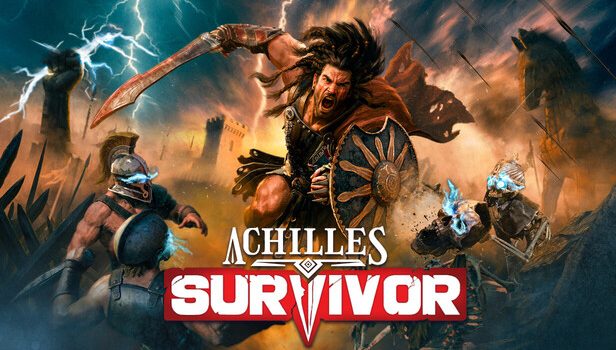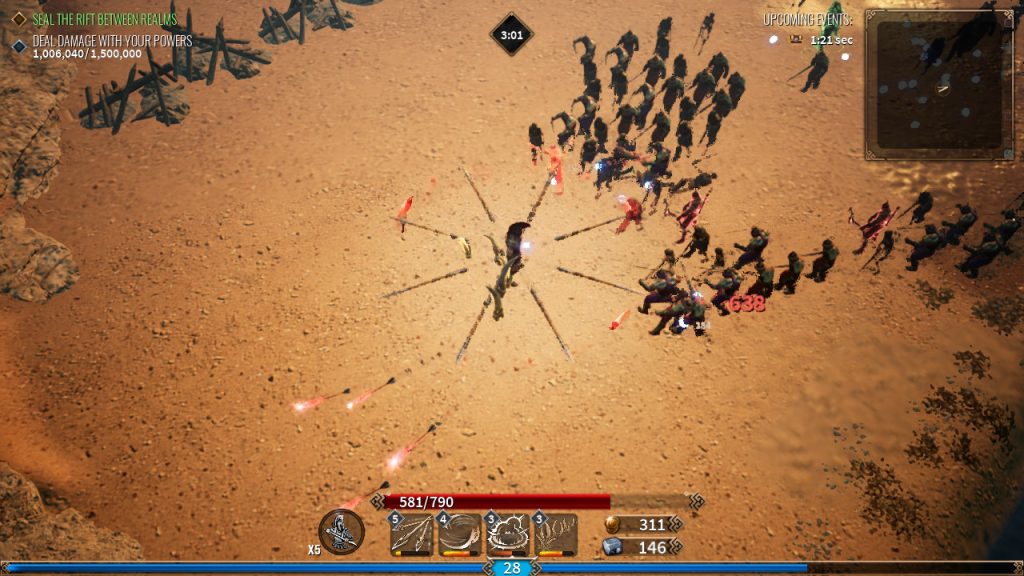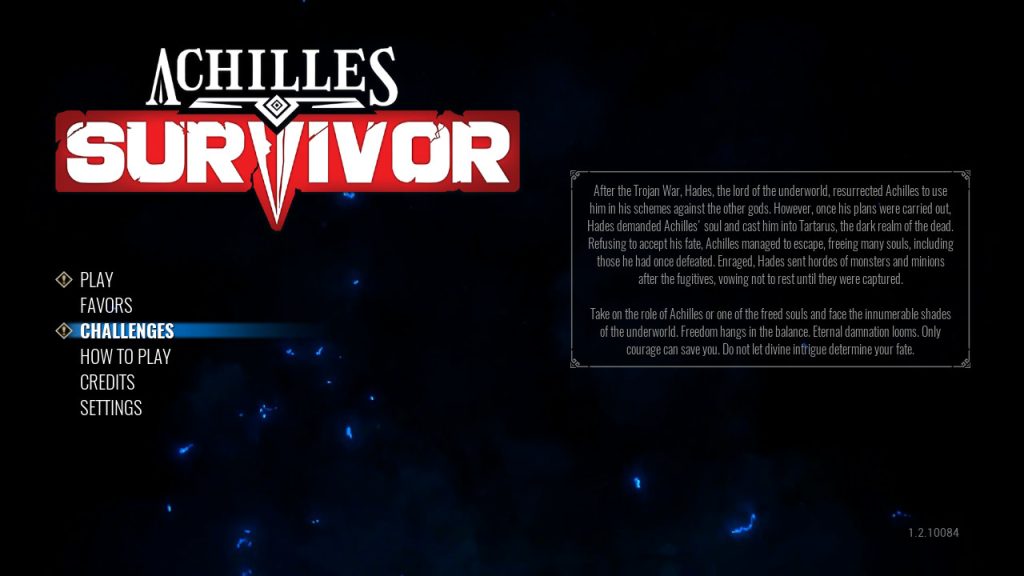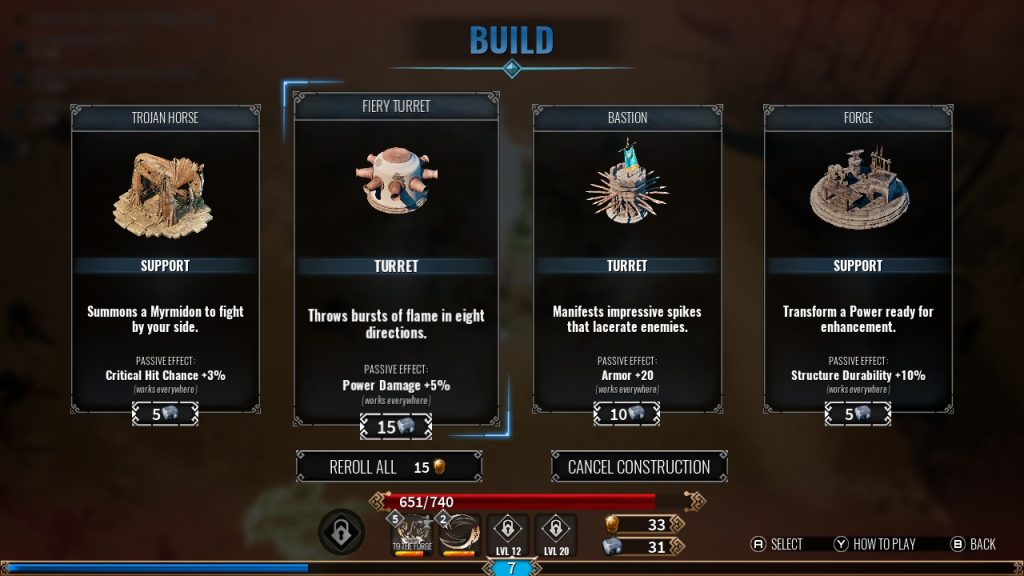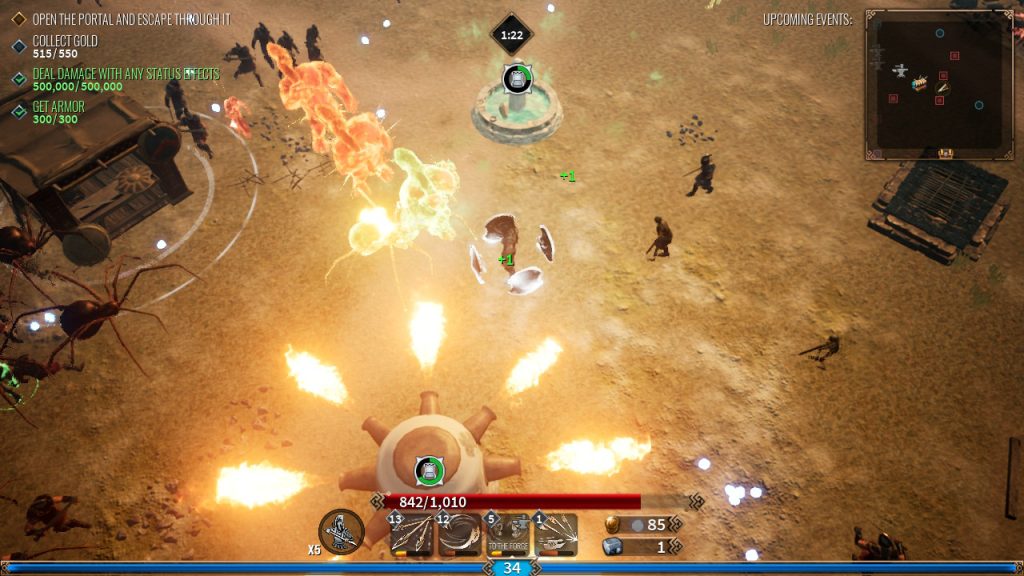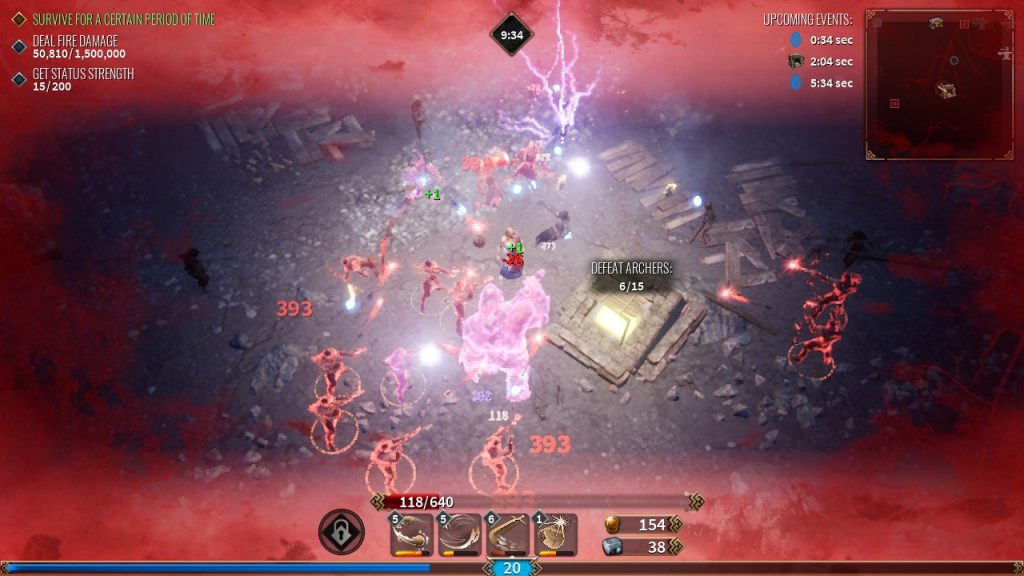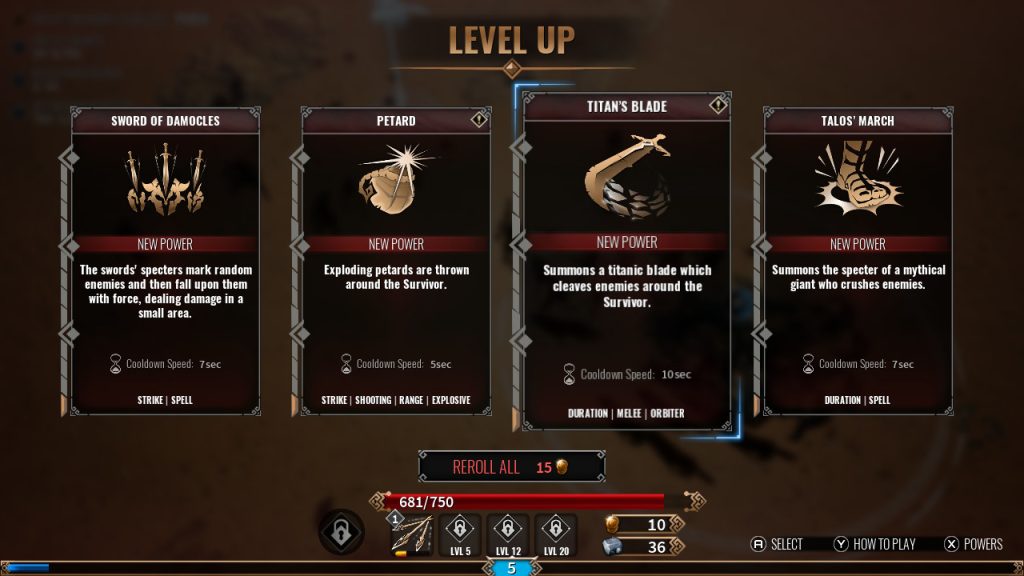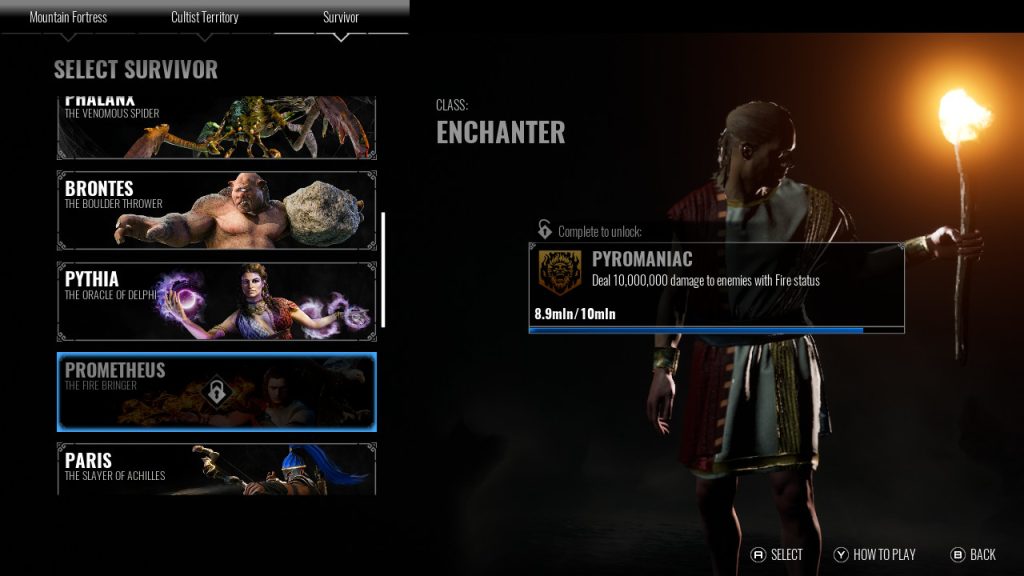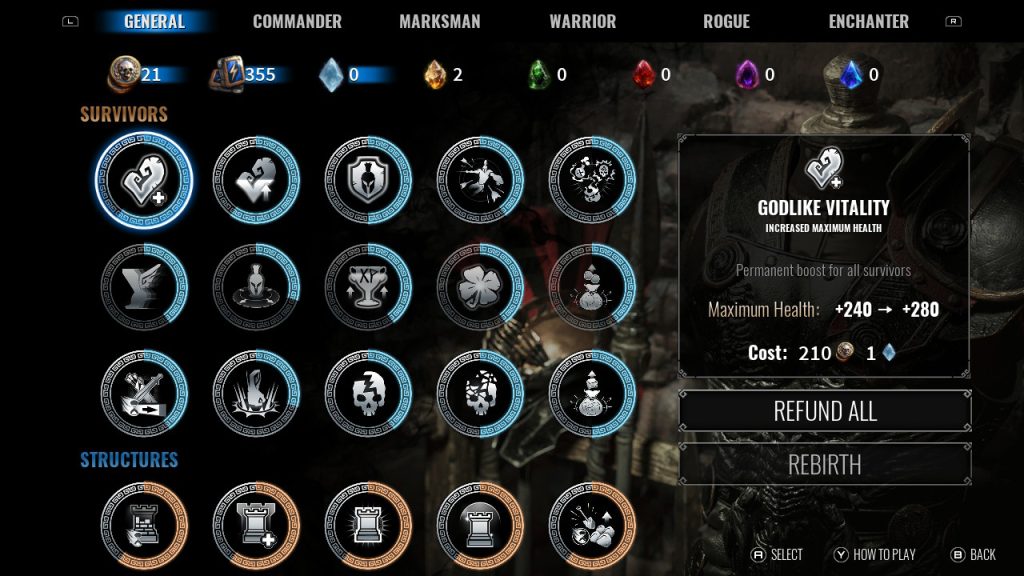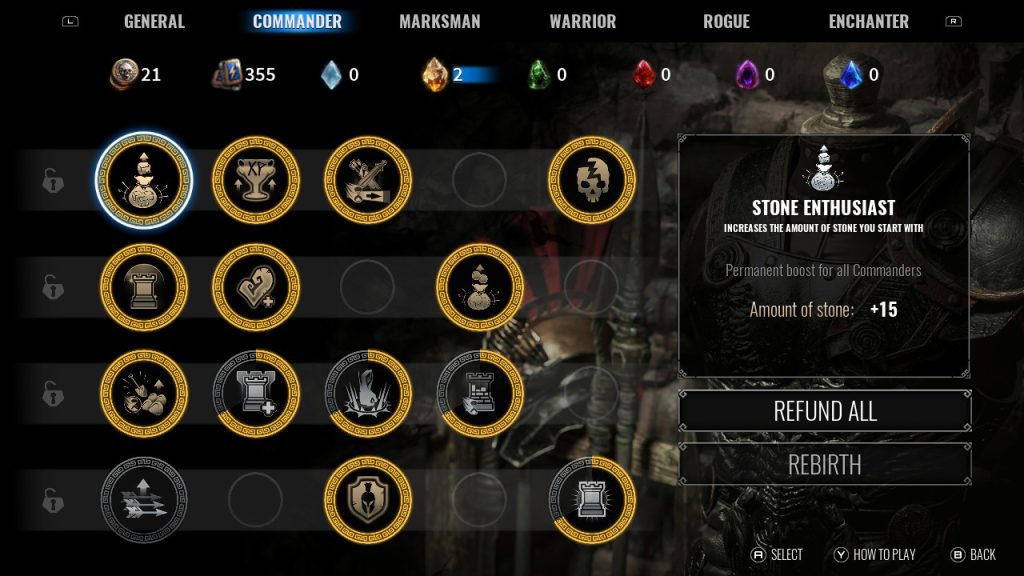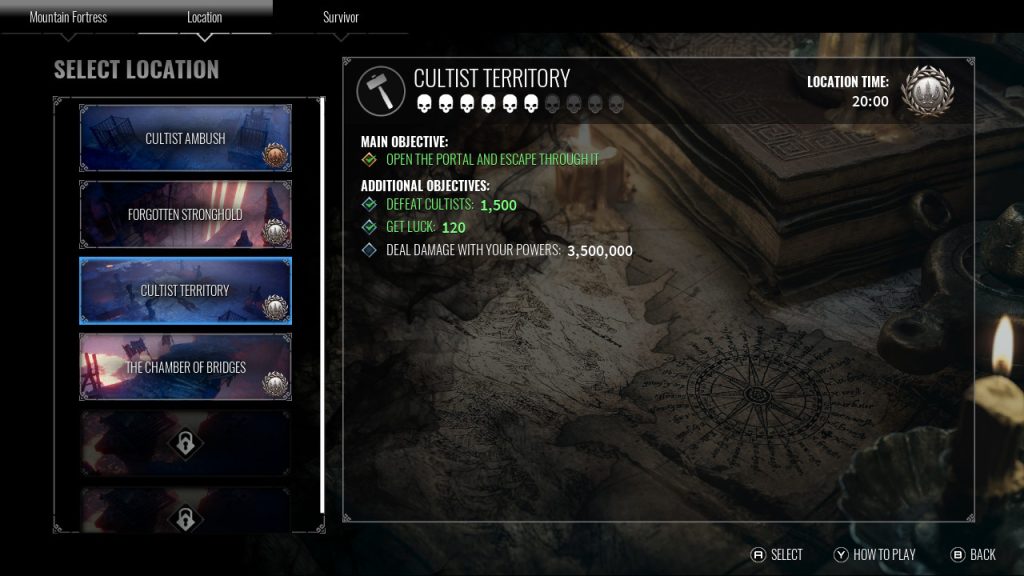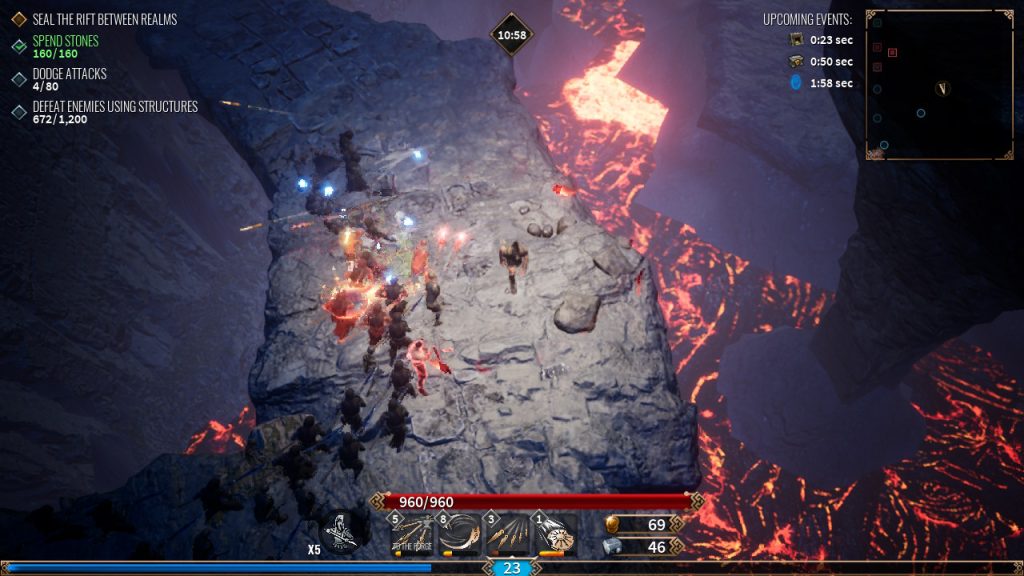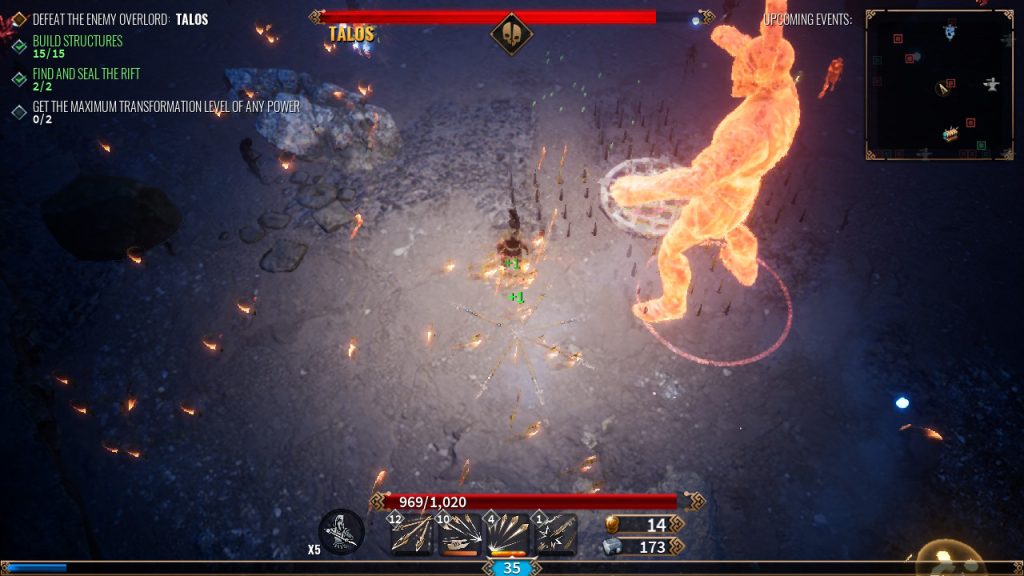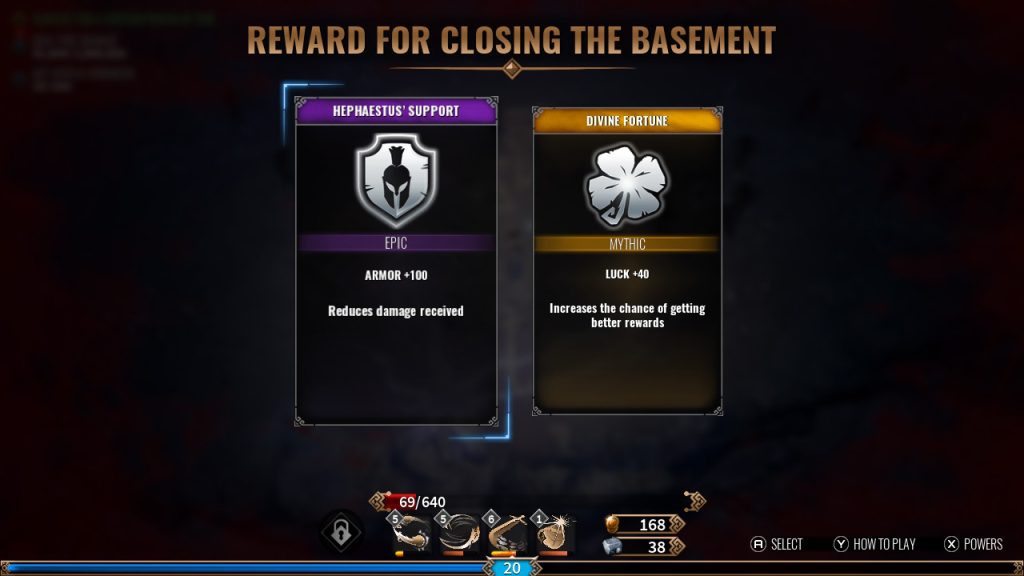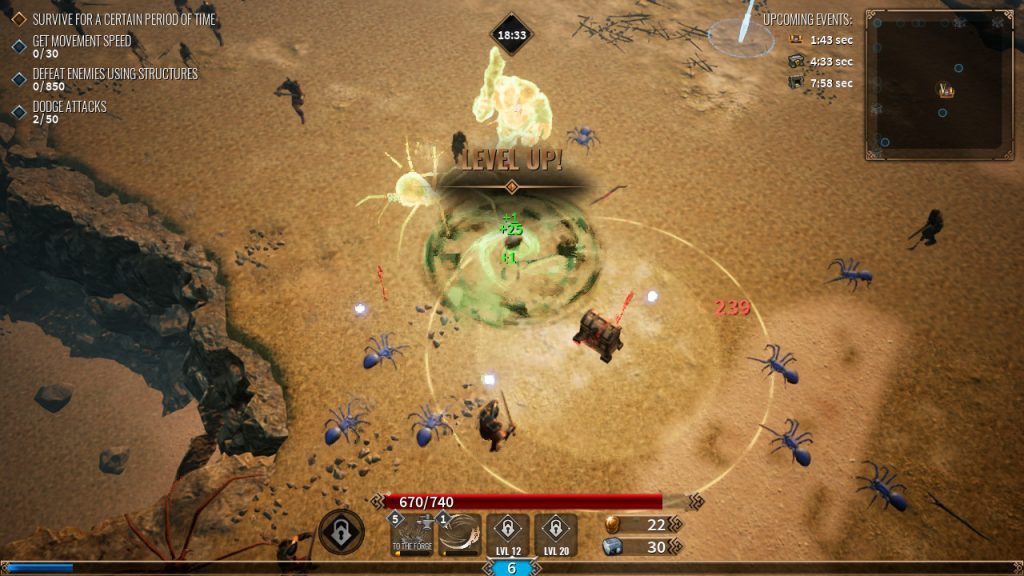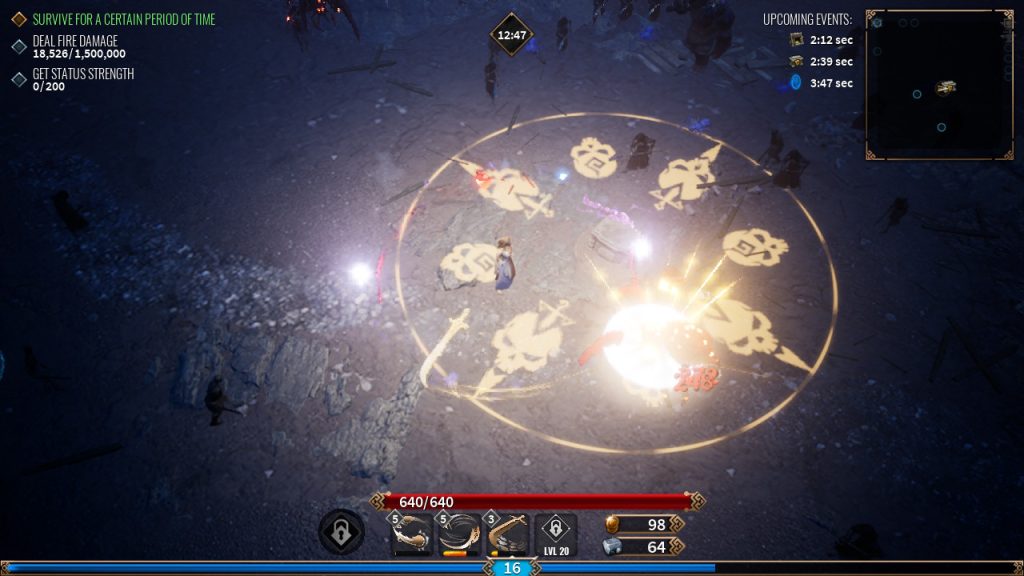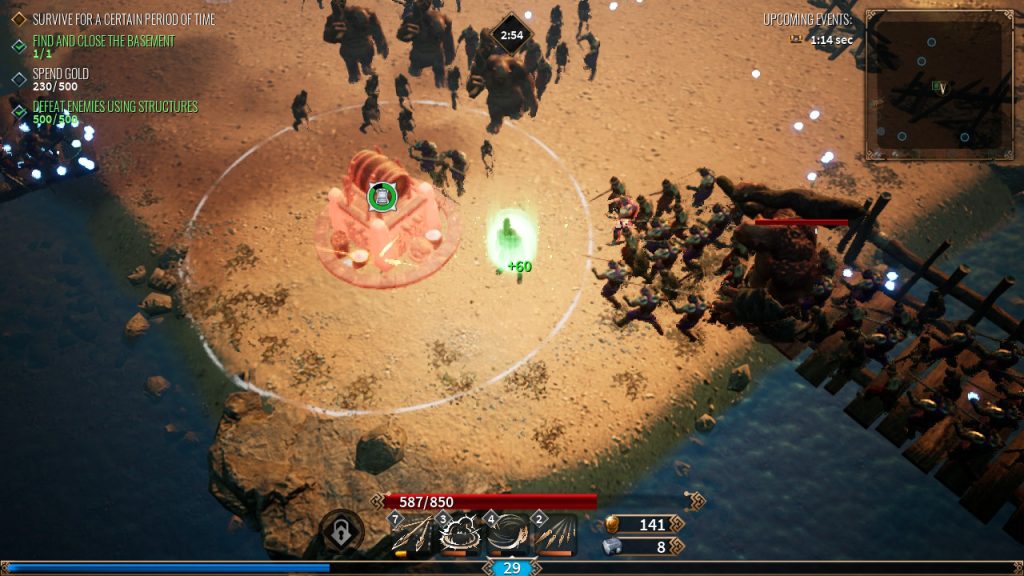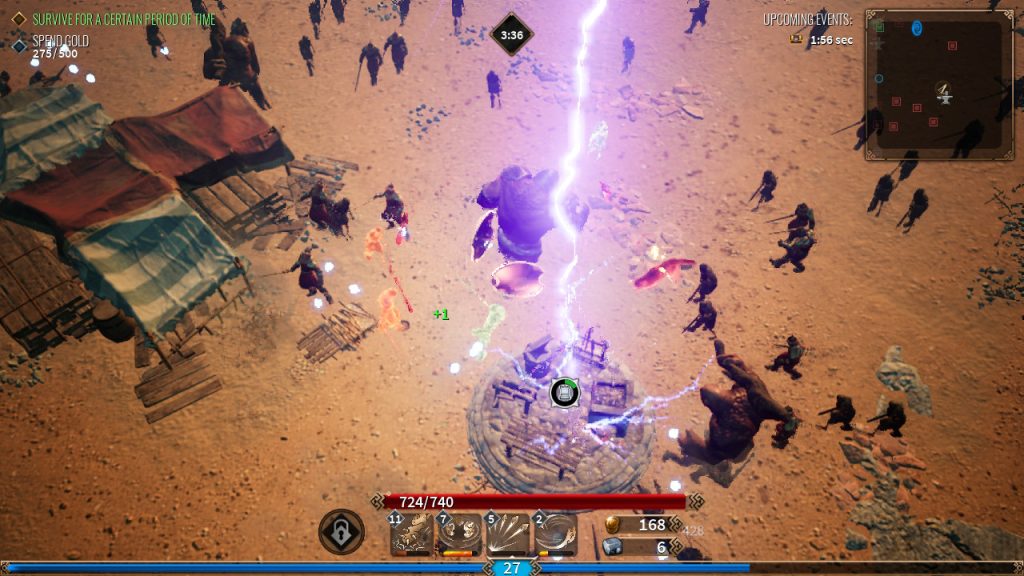Achilles: Survivor Review (Switch)
Summary: The game’s low price and moments of charm give it a modest appeal. Unfortunately, that isn’t enough to elevate an experience that feels thin and undercooked. In the end, it’s a diluted take on a genre already crowded with far stronger competitors.
2.3
Mortal Misstep
In a genre full of titans, this one barely escapes the underworld. Developed and published by Dark Point Games, Achilles: Survivor arrived on Nintendo Switch on October 30th, 2025, several months after its full release on other platforms. Dark Point Games’ affinity for Greek myth is well-established, having released Achilles: Legends Untold back in 2023, and with this title they pivot that interest into the booming “survivor-like” genre popularized by Vampire Survivors in 2021. On paper, the combination sounds refreshing. A mythological theme layered over a fast-paced, run-based auto-battler with elements of tower defense and persistent progression is a no-brainer. In practice, though, this Switch version exposes the game’s structural weaknesses more than its strengths. Achilles: Survivor has a handful of neat ideas, but despite its ambition, the execution ends up feeling more tedious than triumphant.
The setup of Achilles: Survivor is surprisingly rich for a genre that rarely relies on narrative. After being resurrected by Hades following the Trojan War, Achilles breaks free of Tartarus and inadvertently frees other trapped souls. Hades, less than thrilled, sends endless underworld forces to drag them back. You play as Achilles or one of these liberated survivors, fighting through mythological arenas to hold off the god’s wrath. It’s a solid premise, Greek mythology practically begs for reinterpretation, but here it amounts to little more than flavor text. Once a run begins, the story disappears entirely. Unlike something like Soulstone Survivors, where narrative lore interlocks with progression, Achilles’ mythological backdrop never enhances the gameplay. It’s disappointing, especially given how many Greek legends could’ve been woven into objectives, skills, or enemy waves. The result is a setting with potential but no impact.
Achilles: Survivor plays like most auto-battling survival roguelites. Your character attacks automatically and your job is to navigate square arenas while endless enemy waves try to box you in. Experience gems drop, levels tick up, and you choose between new weapons, passive boosts, or stat enhancements. In that respect, it’s standard fare. Where this game tries to stand apart is its structure-building system. In addition to XP, you gather stone by picking up scattered rocks or mining specific nodes on the map. Stones can then be used to erect fixed structures at marked locations: flame turrets to funnel damage, poison pools for area denial, statues that call down lightning, healing stations, shops, or even allies who fight alongside you. Strategically placing these toward the edges of your routes, especially in late-run choke points, can give the game a light tower-defense flavor.
In concept, it’s a smart way to make the arenas feel less static. In execution, though, the effect is mixed. Structure placement can be satisfying, especially when you build a cluster that melts incoming enemies, but because every build spot is predetermined rather than free-placed, experimentation is more limited than it appears. After a few runs, you’re largely repeating the same layout patterns because the map only gives you so many options.
Achilles: Survivor offers a wider roster of playable characters than expected. Achilles, Paris, Brontes, Tantalus, and many others fall under specialized classes such as Commander, Enchanter, or Slayer, each designed to encourage a different playstyle. The variety is genuinely nice, and the class-specific skill trees give you reason to try characters you might otherwise ignore. You can unlock dramatic transformations for your weapons if you’ve built a Forge. These upgrades can radically change how a power behaves, and it’s one of the more successful systems in the game. You can equip up to four weapons per run, mixing fire effects, spinning blades, trailing spikes, or elemental projectiles into your build. Between runs, you invest earned currency into Favors, long-term upgrades that improve health, luck, movement speed, and other essentials. These meta-progression boosts are necessary because the difficulty ramps steeply across realms like Troy and Greece. The unlock-and-upgrade loop is expected, and while it’s serviceable, it also becomes the root of some of the game’s most frustrating problems.
The biggest issue with Achilles: Survivor is how quickly it becomes a grind. Every map lasts a fixed twenty minutes, and dying near the end, or reaching a portal too late, means a full reset. Early on, it’s not uncommon to lose twenty minutes because of a mechanic you didn’t fully understand or an objective that hinges on luck rather than strategy. Unlocking new realms requires earning gold medals in maps, and some objectives border on unreasonable during a first or even third attempt. Requirements like inflicting massive damage totals, reaching a specific luck threshold, or hoarding hundreds of gold pieces can feel impossible depending on the character you’re using. Some characters simply aren’t built to complete certain tasks, forcing repeated runs just to test which ones actually qualify.
The grind isn’t a natural difficulty curve, it’s a forced repetition loop driven by randomness, slow character ramp-up, and objectives that demand specific builds. What should be replayable ends up feeling exhausting, especially because every attempt is a twenty-minute commitment. The game does include shorter runs and an endless mode, but the progression structure pushes you toward the standard twenty-minute format long before you’ve mastered the systems or built up enough Favors to reliably succeed. Even after completing a run, the sense of accomplishment never really came. I felt no different than when I failed.
Visually, Achilles: Survivor is one of its biggest disappointments. Despite pulling inspiration from one of the most vivid mythologies in history, the art direction is muted and uninspired. Levels lean heavily on drab grays and browns, enemies feel stiff and playdough-like, and attacks rarely look impactful or expressive. While it’s understandable that a survivors-like game prioritizes performance, the washed-out style drains the mythological flair that should’ve been this project’s biggest aesthetic advantage. On Switch, the visuals take an additional hit. Soft textures and low detail are passable in handheld mode, but blown up on a TV the environments look sparse and muddy.
For the most part, Achilles: Survivor runs adequately on Nintendo Switch, but the longer a run lasts, the more cracks begin to show. Frame pacing stutters appear during crowded waves, and in late-game chaos the system struggles to keep up. Rubber-banding, your character suddenly snapping backward or forward, can happen when the framerate can’t handle the explosions, effects, and enemies all at once. In a game where survival hinges on positioning, these hitches can cost you health, objectives, or even a victory. Outside of these spikes, the game is playable, but the technical issues undermine long-run consistency, especially in Endless mode, where the Switch feels noticeably overworked.
Sound design in Achilles: Survivor is fine in the most literal sense. Weapons make the noises they need to, menus click cleanly, and enemies groan or screech on cue. But nothing stands out. There’s little tension, little atmosphere, and no musical identity that ties into the Greek myth theme. Like much of the game, the audio does its job, but with a subject this ripe for creative direction, it feels like another missed opportunity.
Final Thoughts?
For a game priced at $6.99 USD, Achilles: Survivor absolutely offers some lightweight fun. There’s a generous roster of characters, a serviceable progression system, and a clever idea in its structure-building mechanics. Combined with run-based auto-combat, it can be a pleasant enough background game, something to play while listening to a podcast or unwinding for a few minutes. But as a full package, it struggles. The grind sets in too quickly, the objectives often feel arbitrarily punishing, and the presentation leans heavily toward bland. Its mythological theme could’ve elevated the entire experience, yet it never meaningfully interacts with the gameplay. On Switch specifically, the performance hiccups hold the game back even more. Achilles: Survivor isn’t a disaster, but it’s also far from realizing the potential of its concept. If you’re curious about Greek mythology or want a low-cost survivor-like with a small twist, you might find a few hours of entertainment here. If you’re on the fence, though, you’re probably better off choosing a more polished entry in the genre.


